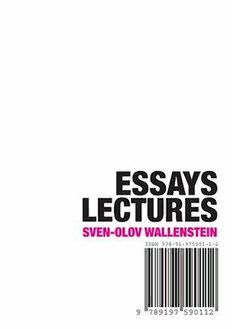
Essays, Lectures PDF
402 Pages·2007·9.562 MB·English
Most books are stored in the elastic cloud where traffic is expensive. For this reason, we have a limit on daily download.
Preview Essays, Lectures
Description:
Through analyses of Parmenides, Augustine, Heidegger, and Deleuze, the essays in the first part of this book approach a twofold understanding of certain limit situations in Western metaphysics. On the one hand, this limit must be seen as that which resists thinking, the unthought lodged inside thought, and in this sense these texts pursue a line of questioning that was opened up by the possibility of a dismantling or deconstruction of metaphysics. On the other hand, the limit must be understood as an internal structure, a turn or a fold that creates a variable interiority, that resonates as an event, and produces images of its own operations that call for an active response. This second understanding of the limit engages a conception of the subject as a process of subjectification and an active construction. These two paths intersect and cross, and they form the horizon of contemporary thought. In the second part, the question of technology and nihilism in modern art and architecture is addressed. Drawing on Heidegger, Benjamin, and Foucault, philosophical reflections on the essence of technology are confronted with other versions of modernity at once very close and very distant from the conceptions of technology that were worked out in artistic avant-gardes to the genealogy of modern individuality on the basis of processes of biopower. The space-time of subjectivity and thought, the field of desire, body, and experience, and our modes of discursive rationality, are no longer pre-given forms, but must be understood as results of a continual experimental construction in which art and philosophical thinking are both implicated.
See more
The list of books you might like
Most books are stored in the elastic cloud where traffic is expensive. For this reason, we have a limit on daily download.
